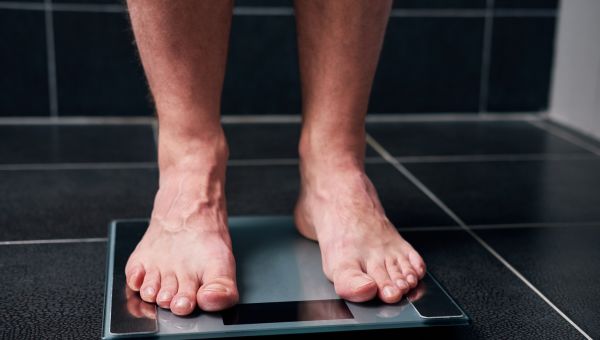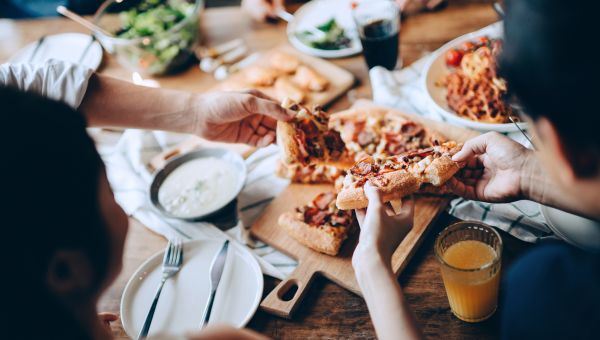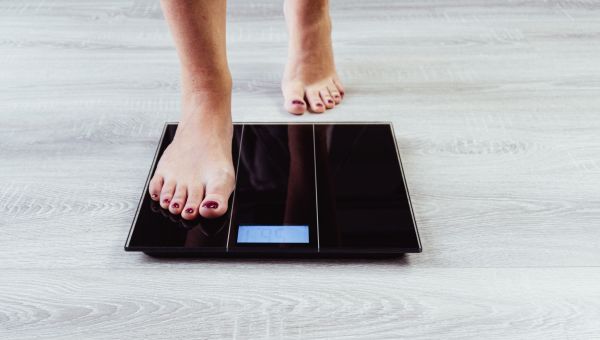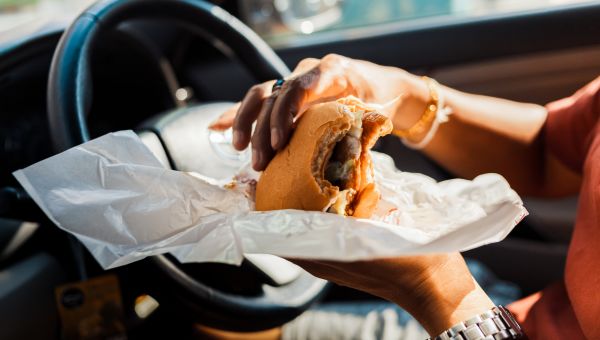7 common weight loss mistakes—and how to fix them

You exercise regularly and you think your diet is pretty good, so why won’t the scale budge? The fact is, we’re not all experts in everything weight loss, and those gaps in knowledge can derail our efforts to shed a few pounds. Find out if you make some of the most common weight loss mistakes—and learn simple ways to correct them.

Deal-Making
We’ve all made diet deals with ourselves along the lines of, “If I eat a big salad for dinner, then I can have pie for dessert.” The mistake here is separating eating to lose weight with eating for good health. You may be able to burn off the calories in the donut you just ate, but unhealthy foods… Show More
We’ve all made diet deals with ourselves along the lines of, “If I eat a big salad for dinner, then I can have pie for dessert.” The mistake here is separating eating to lose weight with eating for good health. You may be able to burn off the calories in the donut you just ate, but unhealthy foods are often loaded with saturated fats, sodium and sugar, wreaking havoc on your internal body systems, says Michael Roizen, MD.
The fix: Don’t swear off a favorite food completely—that could create cravings. Reframe indulgences from “let’s make a deal” to a planned, portion-controlled treat.
Show Less
Skipping Meals After a Slip-Up
Suppose that one slice of pizza turns into two or even three. You may decide to drastically cut calories for the rest of the day or even skip your next meal. The trouble is you risk becoming so hungry that you eat at least as many calories as you tried to save the next time you eat—or become so… Show More
Suppose that one slice of pizza turns into two or even three. You may decide to drastically cut calories for the rest of the day or even skip your next meal. The trouble is you risk becoming so hungry that you eat at least as many calories as you tried to save the next time you eat—or become so anxious about overeating that you do just that.
The fix: Don’t waste time berating yourself for an extra helping or polishing off a pint of ice cream. Hit the “reset” button and continue to eat normally, making healthy food choices. It’s better to use your energy looking ahead then revisiting the past.
Show Less
Avoiding the Scale
Certain numbers can tell you a lot about your health, whether it’s your cholesterol levels or blood pressure. The same is true for your scale. Not weighing yourself for fear that the needle has moved up can deprive you of information you need for weight loss success.
Certain numbers can tell you a lot about your health, whether it’s your cholesterol levels or blood pressure. The same is true for your scale. Not weighing yourself for fear that the needle has moved up can deprive you of information you need for weight loss success.
The fix: Psychologist Judith Beck, PhD, recommends removing any emotional association from stepping on the scale. As she puts it, think of the number as a measurement you can use to help guide your weight loss efforts. The numbers may prompt you to ramp up your efforts or continue on your current course.
Show Less
Pigging Out Post-Workout
While the temptation to eat after exercising isn’t uncommon—you’ve earned it, right?—you could consume all the calories you burned and then some.
The fix: Rewarding yourself for sticking with your exercise routine is great—as long as the reward is something other than food. Get a mani/pedi or plan… Show More
While the temptation to eat after exercising isn’t uncommon—you’ve earned it, right?—you could consume all the calories you burned and then some.
The fix: Rewarding yourself for sticking with your exercise routine is great—as long as the reward is something other than food. Get a mani/pedi or plan a movie date with a gal pal to treat yourself for that sweat session. And if you are truly hungry after exercising, enjoy a portion-controlled healthy snack.
Show Less
Being a Perfectionist
An all-or-nothing mentality makes it difficult to lose weight and keep it off. Why? That mindset requires making perfect choices all day, every day. When you think about it, none of us can make “perfect” choices every time.
The fix: Since setbacks occur, it’s better to have a plan in place to get… Show More
An all-or-nothing mentality makes it difficult to lose weight and keep it off. Why? That mindset requires making perfect choices all day, every day. When you think about it, none of us can make “perfect” choices every time.
The fix: Since setbacks occur, it’s better to have a plan in place to get back on track. Remember, the goal isn’t to transform into a perfect person, simply a healthier one.
Show Less
You Eat … Wherever
Many of us are accustomed to eating wherever we happen to be: in front of the TV, at our desks, in the car, standing at the kitchen counter. The trouble is it’s hard to regulate eating when you do it in so many different places.
The fix: This may not be groundbreaking, but it’s proven to work:… Show More
Many of us are accustomed to eating wherever we happen to be: in front of the TV, at our desks, in the car, standing at the kitchen counter. The trouble is it’s hard to regulate eating when you do it in so many different places.
The fix: This may not be groundbreaking, but it’s proven to work: Designate certain spots as eating locations and allow yourself to only eat there. Your number one destination should be your dinner table. That means sitting down to enjoy a meal or snack and limiting distractions such as checking email or watching TV.
Show Less
You Eat … Whenever
Your body does best when you follow a routine, and this includes maintaining a schedule for meals and snacks. When mealtimes are unpredictable your body starts to stress because it’s not sure when the next meal is coming. This causes cortisol levels to spike, spurring appetite.
The fix: Stick to… Show More
Your body does best when you follow a routine, and this includes maintaining a schedule for meals and snacks. When mealtimes are unpredictable your body starts to stress because it’s not sure when the next meal is coming. This causes cortisol levels to spike, spurring appetite.
The fix: Stick to regular mealtimes as much as possible. Aim to eat breakfast within an hour of waking. Try not to go more than five hours without a meal or snack. The bottom line: your body needs the energy from food to avoid slumps and keep your metabolism going strong.
Show LessMore On


video

article

slideshow


video


video
